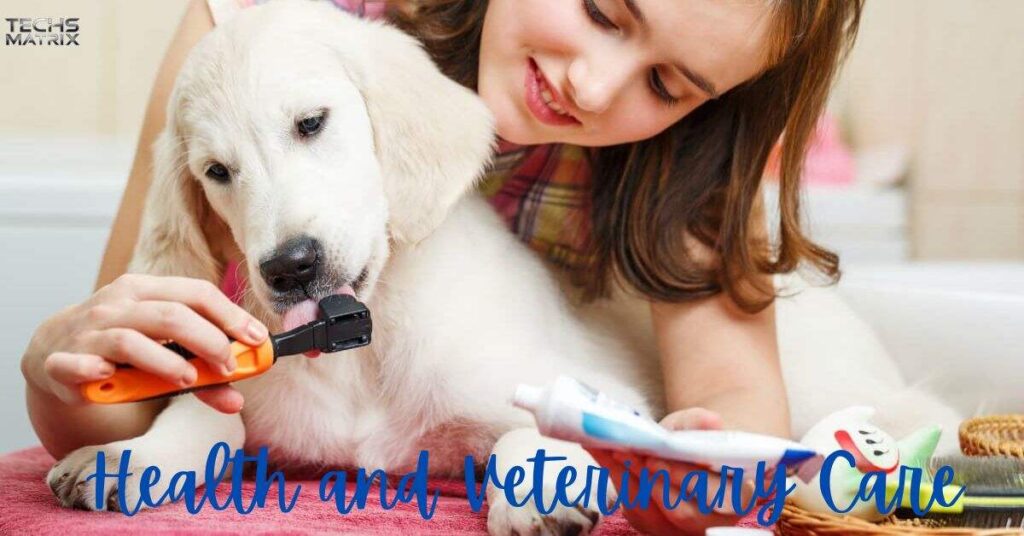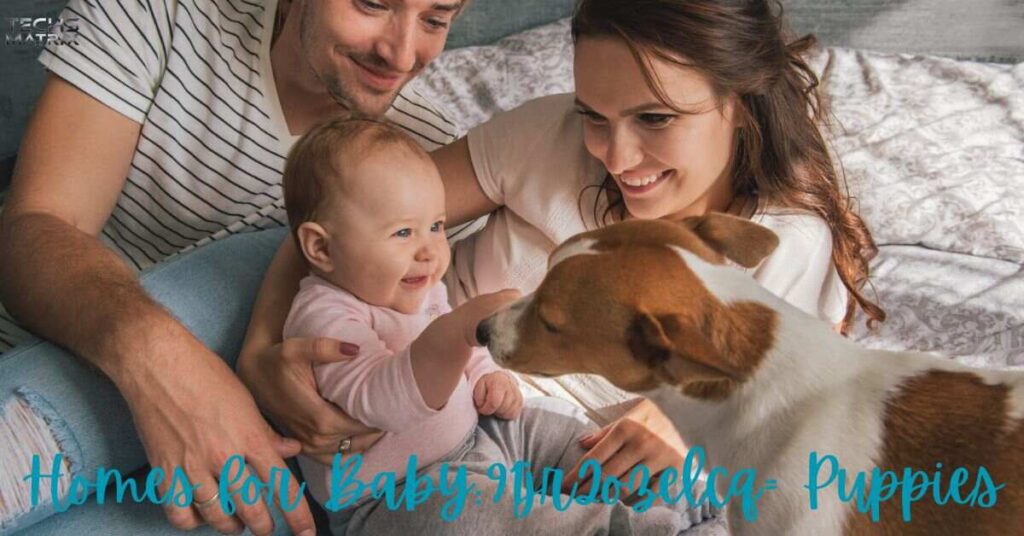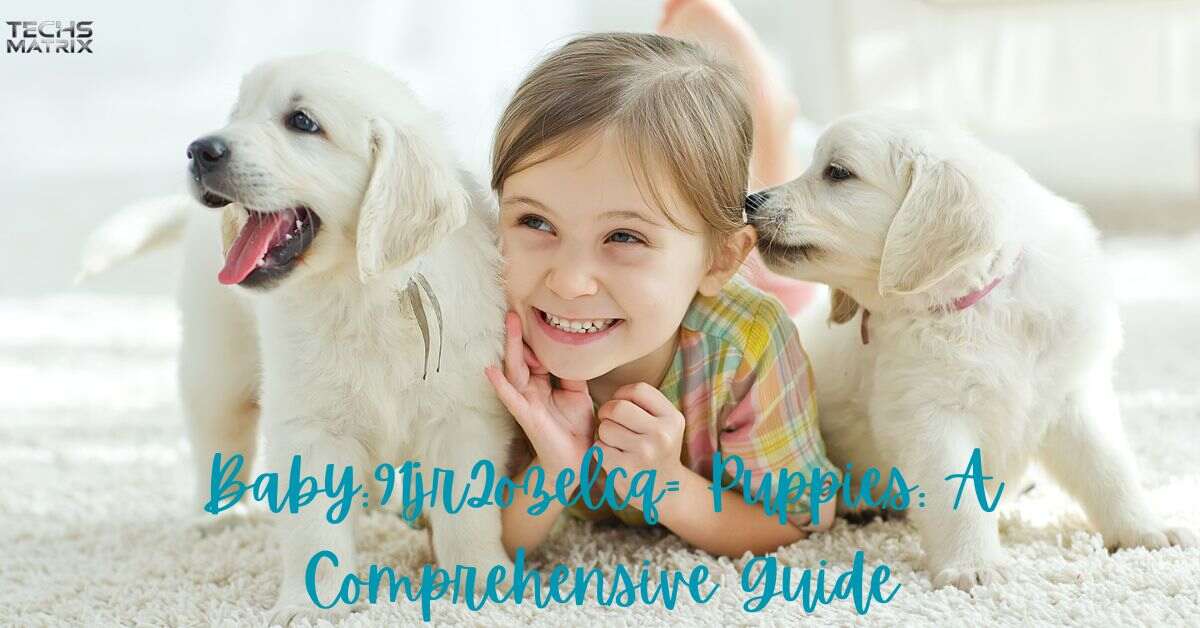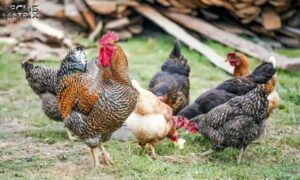Baby:91jr2ozelcq= puppies are adorable bundles of joy. They require special care and attention. This guide will help you understand their needs.
Welcome to the world of Baby:91jr2ozelcq= puppies! These tiny bundles of joy will melt your heart and fill your days with wonder.
Discover everything you need to know about caring for these precious pups in our comprehensive guide. From first breaths to playful paws, we’ve got you covered.
Understanding Baby:91jr2ozelcq= Puppies
Baby:91jr2ozelcq= puppies are delicate creatures. They need constant care in their early weeks. Let’s explore what makes these tiny pups so special.
Developmental Stages
Baby:91jr2ozelcq= puppies grow rapidly. They go through several stages. Each stage has unique characteristics.
Neonatal stage lasts for the first two weeks. Puppies are helpless during this time. They rely entirely on their mother.
Transitional stage occurs from two to four weeks. Pup. youngstart to open their eyes. They begin to hear sounds.
Socialization stage begins in three weeks. It lasts until twelve weeks. This is a crucial time for puppy development.
Physical Characteristics
Baby:91jr2ozelcq= puppies are born small. They typically weigh between 2.5 to 21 ounces. Size depends on the breed.
Their eyes are closed at birth. They open around 10-14 days. Ears also begin to open during this time.
Puppies are born without teeth. Their milk teeth start to come in at about 2-3 weeks. They have soft, fine fur at birth.
Behavioral Traits
Newborn puppies sleep most of the time. They wake only to nurse. This pattern changes as they grow.
As they develop, pup. young become more active. They start to play with littermates. Social behaviors emerge.
Puppies learn quickly. They begin to recognize their mother and siblings. Human interaction becomes important for socialization.
Preparing for Baby:91jr2ozelcq= Puppies
Preparing for a baby:91jr2ozelcq= puppies is crucial. It ensures their safety and comfort. Here’s what you need to know.

Setting Up the Whelping Area
The whelping area is where pup. young are born. It needs to be safe and comfortable. Choose a quiet, draft-free spot.
A whelping box is essential. It should have low sides. This allows the mother to enter and exit easily.
Line the box with soft, absorbent material. Newspapers or puppy pads work well. Change bedding frequently to maintain hygiene.
Essential Supplies
Gather supplies before the pup. young arrive. Having everything ready makes care easier. Here’s a list of essentials:
- Clean towels
- Heating pad or heat lamp
- Digital thermometer
- Puppy milk replacer
- Feeding bottles
- Scales for weighing pup. young
- Nail clippers
- Infant nasal aspirator
Pre-Birth Preparations
Schedule a vet check-up for the mother dog. This ensures she’s healthy before giving birth. Discuss any concerns with your vet.
Learn about the birthing process. Understand signs of labor. Know when to call for help.
Prepare a quiet area for the mother. She’ll need a calm space as her due date approaches.
Caring for Newborn Baby:91jr2ozelcq= Puppies
Caring for newborns is a full-time job. They need constant attention. Here’s how to meet their basic needs.
Feeding and Nutrition
Mother’s milk is best for newborns. Ensure pup. young are nursing regularly. Watch for signs of hunger.
Some pup. young may need supplemental feeding. Use puppy milk replacer if necessary. Never use cow’s milk.
Feed pup. young every 2-3 hours. This includes overnight. Weigh pup. young daily to ensure they’re gaining weight.
Temperature Control
Newborns can’t regulate their own body temperature. They need external heat sources. Keep the whelping area warm.
Use a heating pad or heat lamp. Provide a temperature gradient. This allows puppies to move to cooler areas if needed.
Monitor puppies for signs of overheating or chilling. Adjust temperature as needed.
Hygiene and Grooming
Keep puppies clean and dry. The mother usually handles this task. Help if needed.
Gently clean puppies with a warm, damp cloth. Pay attention to the umbilical area. Watch for signs of infection.
Trim pup. young nails if they become too sharp. Be very careful not to cut too close to the quick.
Health and Veterinary Care
Regular health checks are vital. They ensure pup. young are developing properly. Early intervention can prevent problems.

First Veterinary Visit
Schedule a vet check within 48 hours of birth. The vet will examine both mother and pup. young. They’ll check for any birth defects or health issues.
Discuss a deworming schedule. Pup. young often need deworming at 2, 4, 6, and 8 weeks. Follow your vet’s recommendations.
Ask about vaccination schedules. Puppies typically start vaccines at 6-8 weeks. Your vet will provide a specific timeline.
Common Health Concerns
Watch for signs of illness in puppies. Common issues include:
- Fading puppy syndrome
- Umbilical hernias
- Cleft palate
- Respiratory infections
- Parasites
Contact your vet immediately if you notice any health concerns. Early treatment is crucial for young pup. young.
Preventive Care
Maintain a clean environment. This prevents many health issues. Change bedding regularly. Clean feeding supplies thoroughly.
Keep pup. young warm and dry. Avoid exposing them to extreme temperatures. Protect them from drafts.
Monitor weight gain closely. Puppies should gain weight steadily. Lack of weight gain can indicate health problems.
Socialization and Training
Early socialization is crucial. It helps pup. young develop into well-adjusted adults. Start training early, but keep it gentle and positive.
Early Socialization
Begin socialization at 3 weeks. Introduce pup. young to various stimuli. This includes different sounds, textures, and smells.
Handle puppies gently every day. This helps them get used to human touch. Introduce them to different people.
Expose pup. young to household noises. Let them experience everyday sounds. This helps prevent fear responses later.
Basic Training Concepts
Start basic training around 5-6 weeks. Keep sessions short and fun. Use positive reinforcement techniques.
Teach puppies their names. Use their names often when interacting with them. Reward them for responding.
Begin potty training basics. Show pup. young where to eliminate. Praise them for using the correct area.
Preparing for New Homes
If rehoming puppies, start preparation early. Ensure they’re well-socialized before leaving. This helps with the transition to new homes.
Teach pup. young to be comfortable alone. Start with short periods. Gradually increase time.
Introduce pup. young to different environments. This helps them adapt to changes more easily.
Finding Homes for Baby:91jr2ozelcq= Puppies
Rehoming puppies is a big responsibility. It’s important to find good matches. Here’s how to approach this process.

Screening Potential Owners
Create an application process. Ask potential owners about their lifestyle. Ensure they’re prepared for puppy care.
Conduct interviews with potential owners. Meet them in person if possible. Observe how they interact with the pup. young.
Check references if provided. This can give insight into the potential owner’s character and ability to care for a pet.
Preparing Puppies for New Homes
Ensure puppies are fully weaned before rehoming. They should be eating solid food consistently. This usually occurs around 7-8 weeks.
Complete initial vaccinations and deworming. Provide new owners with health records. Discuss future veterinary needs.
Provide a “puppy pack” for new owners. Include:
- Feeding instructions
- Training tips
- Health records
- Small amount of current food
- Favorite toy
Follow-up and Support
Stay in touch with new owners. Offer support and advice. Be available to answer questions.
Consider scheduling a follow-up visit. This allows you to check on the puppy’s progress. It also gives owners a chance to ask questions.
Provide resources for puppy care. Share information on training classes. Recommend trusted veterinarians in their area.
Must Read This Article:Mastering the Art of Canceling Spectrum Internet: Your Ultimate Guide to Freedom
Frequently Asked Questions
How often should newborn puppies nurse?
Newborn pup. young should nurse every 2-3 hours, including overnight. Monitor them to ensure they’re getting enough milk.
When do puppies open their eyes?
Puppies typically open their eyes between 10-14 days after birth. Don’t force their eyes open; let it happen naturally.
How can I tell if a puppy is sick?
Signs of illness include lethargy, lack of appetite, vomiting, diarrhea, and constant crying. Contact a vet if you notice these symptoms.
When should puppies start solid food?
Begin introducing soft puppy food around 3-4 weeks of age. Gradually transition them to solid food over several weeks.
How long should puppies stay with their mother?
Puppies should stay with their mother and littermates until at least 8 weeks of age for proper social development.
Final Words
Caring for baby:91jr2ozelcq= puppies is a rewarding experience. It requires dedication, knowledge, and patience. By following this guide, you can ensure the best start for these tiny lives.
Remember that each puppy is unique. They may develop at slightly different rates. Always consult with a veterinarian for specific health concerns or questions about puppy care.

Sallas: Tech-savvy professional with 5 years in the industry. Skilled in software development, cloud computing, and AI. Known for innovative solutions and teamwork.








